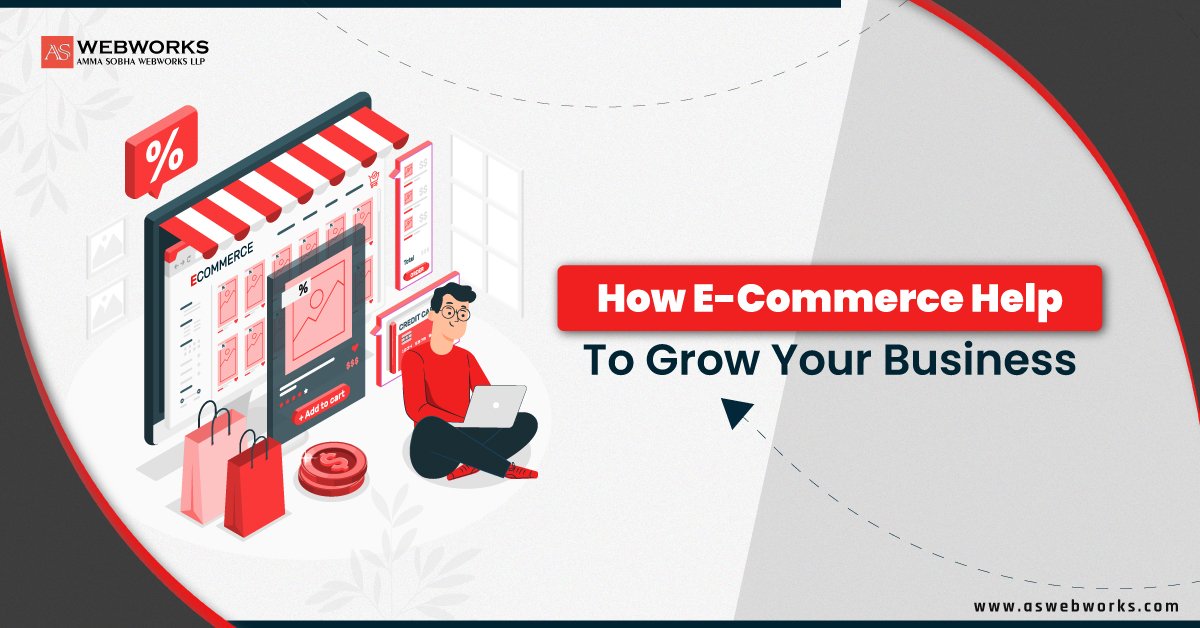What are E-commerce Websites?
E-commerce is a form of business that takes place online or via the Internet. Simply put, when buying or selling something online, the term e-commerce website, or e-commerce for short, is used.
1969, Ph.D. John R. Goltz and Jeffrey Wilkins used a dial-up connection to create the first e-commerce name called Compuserve. Later, many people started their businesses online.
The Internet did not appear in India until 1995, and e-commerce was just beginning around that time. Let’s say it’s the 19th century. If you have a need for household items or groceries, you need to go to a physical store. But now due to e-commerce, you don’t have to rush to the vegetable market or supermarket every time thus saving your time. It’s convenient because you can buy everything online in advance. Indeed, in the face of pandemics, e-commerce has proven to be the safest medium for enterprises to use.
What is the meaning of an E-commerce website?
E-commerce websites, like traditional physical retail stores, allow customers and businesses to purchase and sell on a specific platform. The key difference between e-commerce and physical commerce is that e-commerce activity takes place totally online rather than at a physical location.
Types of E-commerce Websites:
Although the scope of e-commerce is broad, the types of websites that conduct electronic transactions can be classified based on the parties involved.
-
Business-to-Business (B2B):
A B2B platform allows two businesses to conduct electronic transactions. You might buy Kurti from an internet wholesaler if you own a firm that sells, Kurti for example.
-
Business-to-Consumer (B2C):
Probably the most well-known to the general person, a B2C site allows a business and a customer to exchange goods or services, such as purchasing a T-shirt from your favorite online store.
-
Business-to-Administration (B2A):
A B2A site, such as the website of a company that created your city’s online portal, allows electronic transactions between an organization and a public entity.
-
Consumer-to-Business (C2B):
Individuals sell goods or services to businesses on a consumer-to-business (C2B) website. An influencer paid to promote a company’s products could be a freelance SEO specialist who works with companies in a specific area.
-
Customer-to-Administration (C2A):
Similar to B2A, this form of the website allows a consumer to give public administration and governmental organizations information, products, or services—think of paying a parking ticket through your city’s website.
-
Consumer-to-Consumer (C2C):
A consumer-to-consumer (C2C) site, sometimes known as a marketplace, facilitates the trade of goods between two or more individuals. Websites like Etsy and eBay are good examples.
-
Direct-to-Consumer (D2C):
D2C e-commerce takes place when a manufacturer or producer sells their products directly to consumers through the use of their website. The D2C e-commerce model simply “breaks out” the middleman.
Products sold through E-commerce:
E-commerce’s component allows vendors to provide a diverse range of products, some of which would be impossible to sell in a physical store.
-
Physical Goods:
Clothing, Furniture, and Food are examples of tangible goods that can be kept in a warehouse. Consumers can like, save, or purchase items displayed on a seller’s e-commerce website. After a customer makes a purchase, the company ships the goods to them.
-
Services:
E-commerce websites are also popular for selling services such as Consultations, Maintenance, and Coaching. There’s no shortage of guidance offered online.
-
Digital Products:
On e-commerce websites, digital products such as Online Courses, Apps, Software Programs, Podcasts, Music, and E-books are growing increasingly popular.
IN TODAY’S BUSINESS ENVIRONMENT, THESE ARE THE SEVEN BENEFITS OF HAVING AN E-COMMERCE WEBSITE
-
Lower Setup And Operating Costs Than Offline Business:
The cost of actually establishing an e-commerce website is less than that of an offline business. Your company‘s entire sales system is automated online. This saves expenses such as staff, wages, and other operating costs such as electricity and rent. The money you’ve saved can then be used to create your e-commerce website and expand your product line. Nonetheless, the costs of owning and maintaining a website are incomparable to those of a physical store.

-
There Is No Commission:
You may find yourself in uncertainty after deciding to move your business to the Internet. Do you build your own website or create a marketplace profile? Essentially, most marketplaces will charge you between 3 and 4 percent of your total earnings. This means you will never receive the wholesale price for your products. As a result, the advantage of having an e-commerce website is that you can earn the full price of your products.
-
Complete Authority:
Depending on your requirements and expectations, the concept of authority might have a subjective interpretation. However, there are certain clear advantages to being able to make your own rules in your own place. One of the key advantages of having an e-commerce website is that you can organize your page to your choice.
The following examples show this control:
-
Web Development:
You’ll need to consider the advantages of having an e-commerce website that combines your design. A good design will establish the theme for your company and offer a unique user experience.
-
Organize:
You determine how to “decorate your workspace” to meet the demands and expectations of your customers. As a result, it’s necessary to observe the user’s journey to determine what’s incorrect.
-
Support And Communication With Customers:
The benefit of being where your clients are is mostly in the service you provide and the efficiency of your communication with them. An e-commerce website provides the ideal atmosphere for nurturing your relationship with your customers.
-
Developing a Brand:
We’ve all experienced the pain of having an amazing product but not being well-known enough to be trusted by others. However, after you develop a website, your brand gains a lot more respect because you now have a “face.” One of the great things about e-commerce websites is the value you can provide to your customers. Include Blogs, Tutorials, the” About Us” page, and any other type of material that meets the demands of your users. You may then use social media and your web presence to enhance your reputation.

-
Always In The Correct Location
A physical store is tied to a specific location that your clients must visit in order to purchase. An e-commerce website, on the other hand, enables you to reach out to all of your clients in one place: the Internet. Even if you choose to use your website in combination with a physical business, the difference in your visibility will be noticeable. The more channels you can occupy online, the more versatile you are. As a result, you’ll be able to contact them at any time and from any location.

-
Sales Techniques That Are More Measurable
You might be thinking, “How do I know it will succeed?” or “How will I analyze the results?” For example, e-commerce sites are most likely to measure and track using tools like Google Analytics. At regular times, you can view data such as the number of orders processed through your site, the average cart total, the cart abandonment rate, and the percentage of the overall revenue your website has generated. E-commerce advertising is also less costly than other advertising.

-
Less Time Consuming
After you’ve put up your E-commerce website, you shouldn’t have to spend much work managing it. This is because the entire ordering and payment process for clients will be conducted entirely online. This will allow you more time to think about new products to sell, and unique offers to launch. You’ll also be able to identify which products are selling the best.
Conclusion:
In short, establishing an e-commerce website is easier, cheaper, and less risky than establishing a physical store. The Internet can provide additional income as well as a high return on investment in the long term if you have a strong business plan and products that meet your customers’ needs.
If you need expert assistance with your e-commerce website development, we are one of the top e-commerce website development agencies in India, and we are here to guide you along the way to success.


